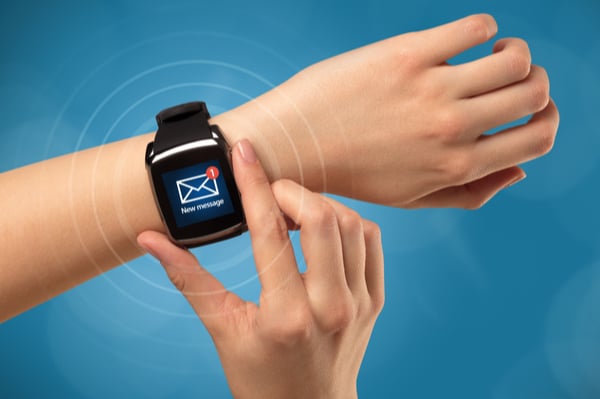The five-minute management idea: wearable tech

Can wearable tech boost productivity or does it encourage staff surveillance? Here’s the latest in our weekly shot of new thinking for business leaders
Emily HillAt its most controversial, wearable tech could mean managers hire only the most productive individuals. That’s an argument put forward by Dr Chris Brauer, director of innovation at the Institute of Management Services at Goldsmiths, University of London. He has suggested that data from devices worn to measure physical and emotional performance could be used to create “biometric CVs”.
At present, some companies give fitness trackers to employees that measure levels of movement in order to boost health. In the US, up to 13 million trackers are already incorporated into corporate wellness plans, according to market-intelligence firm ABI Research.
Embracing wearable devices
In 2015, research by PwC showed that only four in ten employees would use a smartwatch given to them by their employers. This figure rose to more than half (56 per cent) if people knew the information would be used to improve their wellbeing at work. The practice could improve productivity by emphasising wellbeing and decreasing employee absence: according to the Office for National Statistics, about 137 million working days were lost to illness or injury in 2016.
More sophisticated devices could boost productivity by flagging effective relationships between employees. In 2009, staff at a Bank of America call centre were monitored while wearing ‘sociometric badges’ provided by Humanyze. The badge features a microphone for real-time voice analysis, a tracking device, a bluetooth sensor to record proximity to others and a movement sensor to track activity.
Staff were monitored for six weeks and results showed the most sociable workers were also the most productive.
A rise in productivity
Many companies in the UK seem hesitant to be associated with wearable tech. When Professional Manager contacted one leading consultancy firm, a spokesperson only returned our call to insist that its UK outpost did not use such devices and had only been involved in a trial study conducted abroad.
Those that have tried it are also somewhat sceptical. In 2014, global media and marketing services company Mindshare worked with Dr Brauer of Goldsmiths to see what happened when its employees wore three different activity trackers – an accelerometer wristband, a portable brainwave monitor or a posture coach. After a month, New Scientist reported, “productivity had risen by 8.5 per cent and job satisfaction by 3.5 per cent overall”. But the technology was not subsequently adopted by the company.
“We came to the conclusion that it wasn’t necessarily better than other programmes that people could sign up to and take part in, like meditation sessions, yoga and subsidised gym membership,” explains Jeremy Pounder, futures director at Mindshare UK.
The legal perspective
Mindshare’s view is shared by Carolina Milanesi, consumer tech analyst at Creative Strategies in San Jose, who is currently working at the cutting edge in Silicon Valley. When asked if wearable tech will become a management tool that improves productivity, she replied: “I remain sceptical – mostly because I fear employees’ pushback and issues with insurance, liability and so on.”
Any manager looking to introduce wearable tech in their workforce must indeed consider the legal perspective.
“Any employer processing personal information is subject to a range of obligations – this includes making sure they’re very transparent about what they collect, ensuring they have a legal basis for processing that data,” explains Daniel Cooper, partner at Covington & Burling LLP. “They can only collect what is relevant and proportionate to their purposes.”
Next year, the EU General Data Protection Regulation will come into force. “What is really different… are the fines,” Cooper explains. “In May 2018, when the law takes effect, the scope for sanctions will be much higher. There’s the potential for companies’ worldwide turnover to be exposed, up to four per cent.”
“Certainly there were [employee] privacy issues,” Pounder adds. “If you look at how the marketplace hasn’t developed in the past few years – those issues that we identified are probably quite common issues.”
While productivity might benefit from wearable tech, it seems widespread adoption will depend on whether managers and their subordinates are ready to embrace it.
Image credit: Shutterstock

Press & Media Enquiries
For more information or to request interviews, contact CMI's Press Team on 020 7421 2705 or email press.office@managers.org.uk


